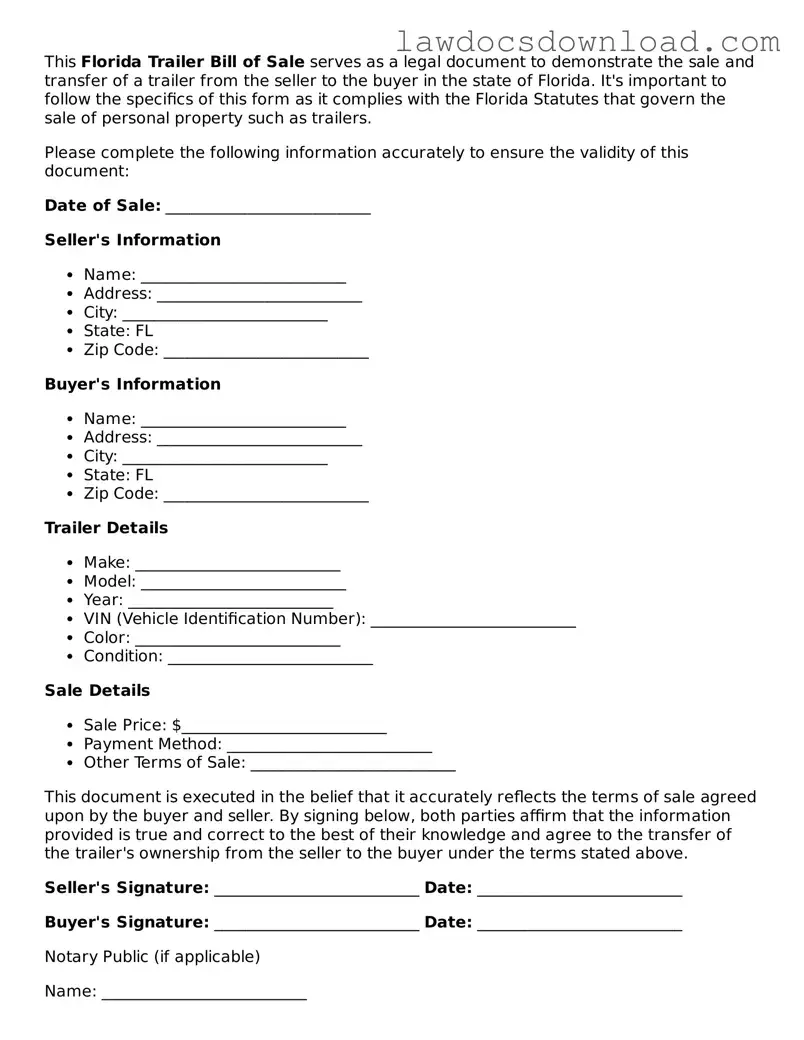Legal Florida Trailer Bill of Sale Form
A Florida Trailer Bill of Sale form serves as a legal document recording the sale of a trailer from the seller to the buyer within the state of Florida. It provides proof of the transaction, detailing the date of sale, purchase price, and identities of both parties involved. This document is essential for both registration purposes and as a protection against future disputes.
Launch Trailer Bill of Sale Editor Here

Legal Florida Trailer Bill of Sale Form
Launch Trailer Bill of Sale Editor Here

Launch Trailer Bill of Sale Editor Here
or
Free Trailer Bill of Sale
Get this form done in minutes
Complete your Trailer Bill of Sale online and download the final PDF.